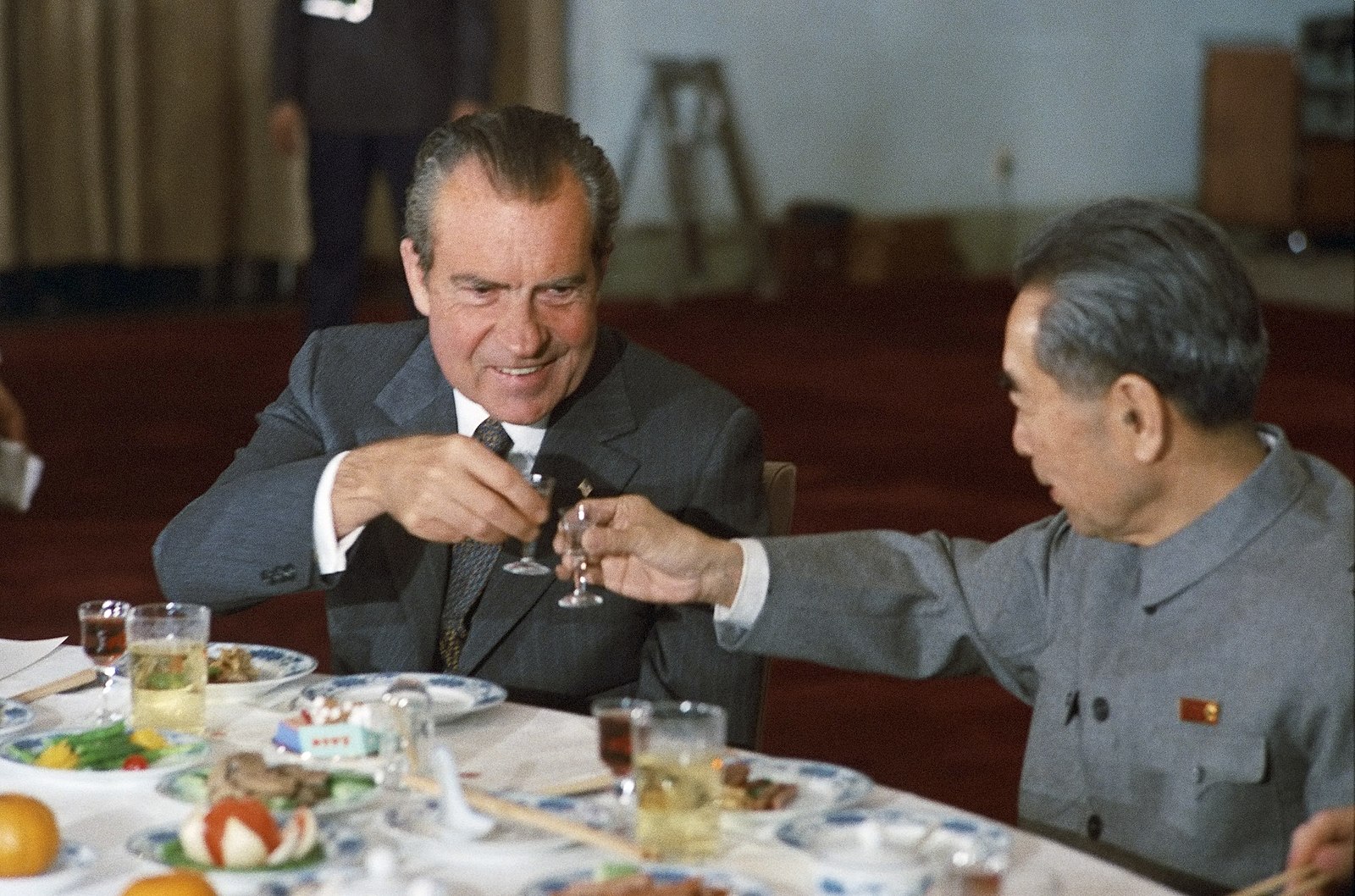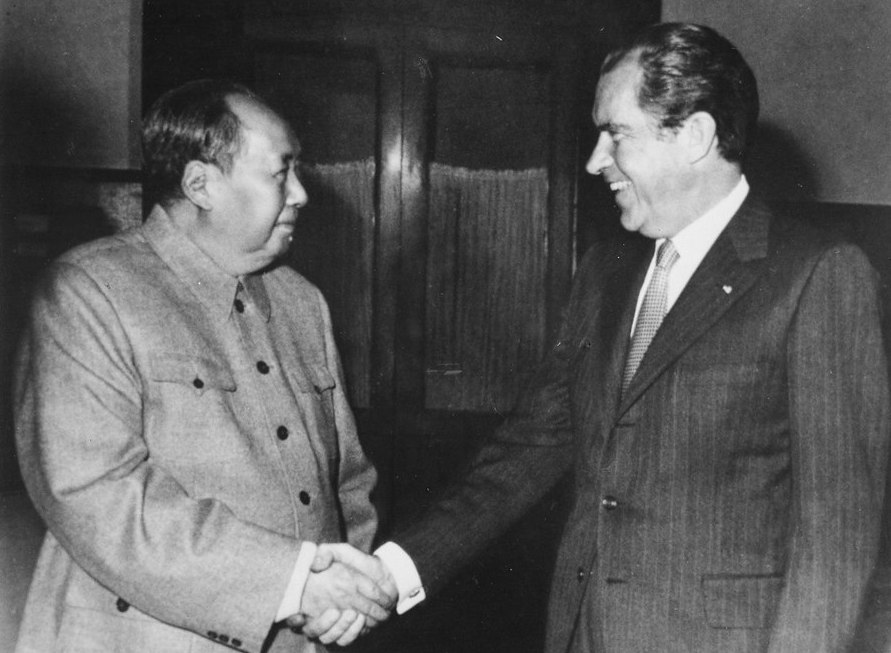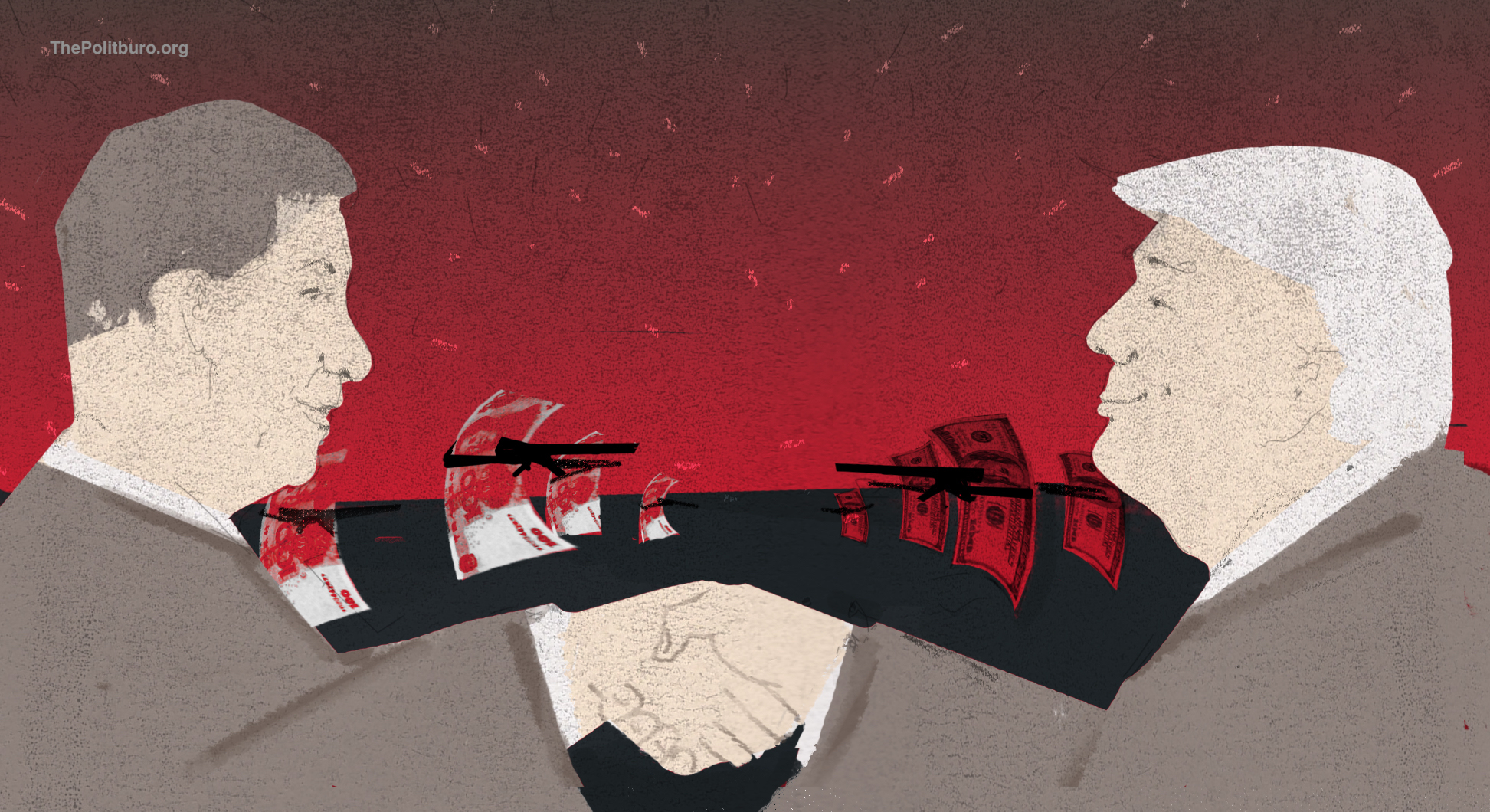Same Bed Yet Different Dreams: Nixon’s Visit in the Sino-US Rapprochement

After careful preparations through Kissinger’s previous visits, Nixon finally arrived in Beijing on 21 February 1972. Zhou Enlai declared that as long as Washington continued its “Vietnamization” policy, Beijing would make its best effort to keep Hanoi’s hold for power. No compromise had been reached on Vietnam. On 24 February, Zhou made a harsher statement that China would persistently assist in North Vietnam even if the United States entirely left the ‘Vietnam Problem’ to the Vietnamese themselves. Nixon took the chance to blame Hanoi. This had left Washington with no choice but to maintain its military presence in the region even as the United States never wanted to remain in Indochina.
In the last meeting between Nixon and Zhou on 29 February, the US President continued to hold the link between Taiwan and Vietnam. Zhou replied “we would rather let the question of Taiwan wait a little while, while we would rather have the war in Vietnam and the whole of Indochina come to a stop because we feel this is a more urgent issue”. To Zhou, the unification of Indochina was a symbolic precondition of larger revolutionary and nationalist movement, which implied China’s ‘recovery’ of Taiwan in the similar fashion in the future.
Therefore, Zhou ranked ‘Vietnam Problem’ as more important than the Taiwan counterpart. The United States eventually failed to implement the link between Taiwan and Vietnam in the Sino-US rapprochement. Nixon came to understand that the United States could not depend on China to solve the ‘Vietnam Problem’, and thus abandoned his goal to ask the PRC to force the Democratic Republic of Vietnam (DRV) for re-negotiation and acquiesced to Beijing’s continuous aid to Hanoi.
The episode on Vietnam in early Sino-US rapprochement has demonstrated that the Nixon Administration was heavily influenced by realpolitik in handling the PRC, yet ignoring the cultural and ideological elements behind the domestic politics and foreign policies of the Chinese Communist Party (CCP).
In the case of Vietnam, the United States did not understand that the Chinese assistance to North Vietnamese struggle was beyond ideological alliance and geopolitical calculation in international relations. Beijing regarded its policy towards Vietnam as fundamental to its legitimacy of representing the ‘real/legitimate’ China since 1949. If North Vietnam did not succeed in eliminating the South, it would symbolically damage the CCP’s internal ruling image, and made Chinese reunification with Taiwan more difficult. Therefore, guided by realism and without a proper comprehension of the CCP’s nature of power and logic of both domestic governance and foreign affairs, made the gains during early Sino-US rapprochement, somewhat limited for the U.S.
Early Limitations in Sino-US rapprochement
At the heart of this limitation, was Washington’s hasty push for solving the ‘Vietnam Problem’ by wishfully trading interests with Beijing. This expediency had a lasting impact on the US policy towards China, and thus the entire Sino-US relationship that persists till this day. It gradually became an arguable pattern in the American diplomacy with the Chinese.
Over and over again, Washington failed to understand the CCP sufficiently enough before it initiated critical foreign policies to either embrace or resist Beijing. Almost habitually, Washington failed to think in advance before it considered the incorporation of Beijing in joint solutions to international problems. As a result, the United States continually hit the wall of suspicion, grievances and even hostility, from Chinese society, which handicaps the pursuit of a more stable relationship with the PRC. This wall was constructed by Washington itself, since the early Sino-US rapprochement under Nixon and Kissinger.
On 29 May 2020, US President Donald Trump lobbed some of his most hawkish remarks on China. As Trump emphasized, “the United States wants an open and constructive relationship with China, but achieving that relationship requires us to vigorously defend our national interests. The Chinese government has continually violated its promises to us and so many other nations”.
Did Beijing truly violate the “promises” that Washington wished it to make? Or there has been also a dimension that China under the CCP perceived and committed to the so-called “promises” radically different from the American imagination? Washington must learn not to repeat the same historical mistakes. Without a sober comprehension of China’s intentions, especially the CCP’s worldview as the ruling party, the United States would act like Don Quixote and fight no one but scarecrow.
This is part of an on-going series examining the history of China’s relationship with the United States.
Read part 1 – The ‘Vietnam Problem’ in Early Sino-US Rapprochement
Read part 2 – Mr. Kissinger goes to Beijing: ‘Vietnam problem’ and the ‘Taiwan question’
Hao Chen is a Ph.D. candidate in the Faculty of History, University of Cambridge. His article 'Resisting Bandung? Taiwan’s Struggle for ‘Representational Legitimacy’ in the Rise of Asian People’s’ Anti-Communist League, 1954-57' is published in The International History Review journal.



